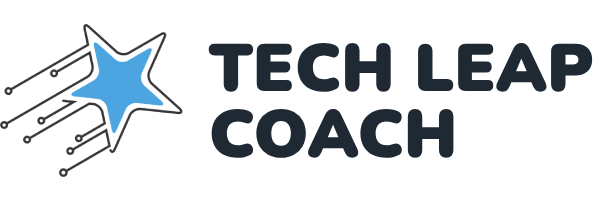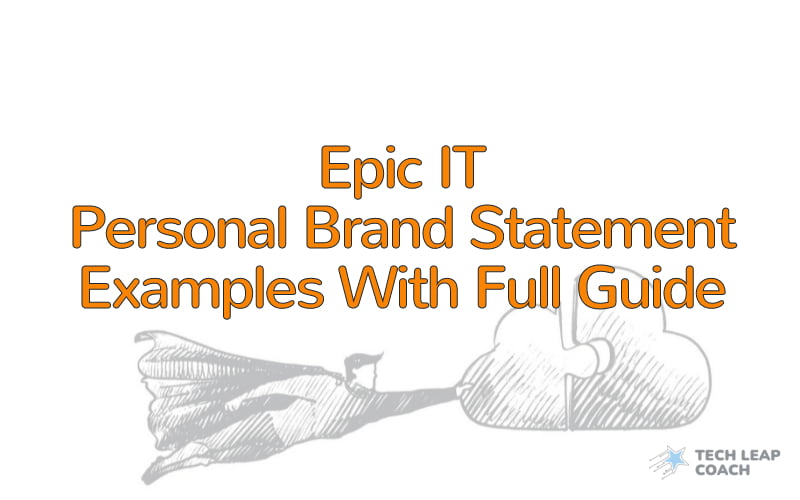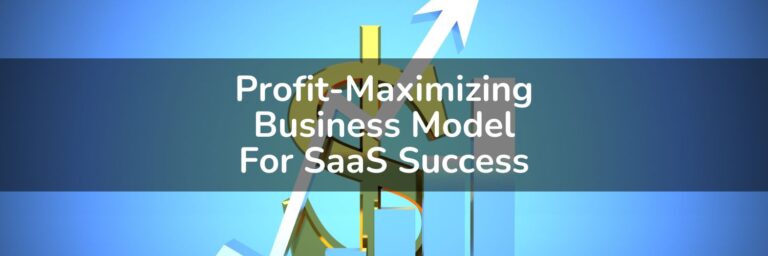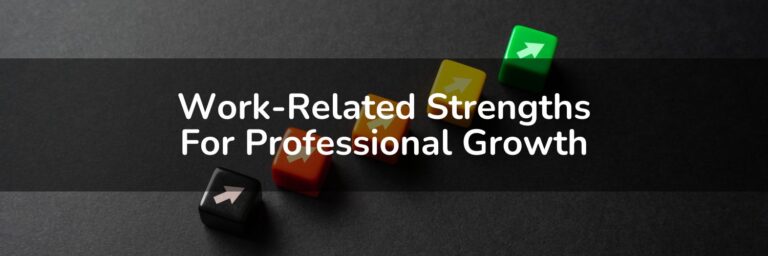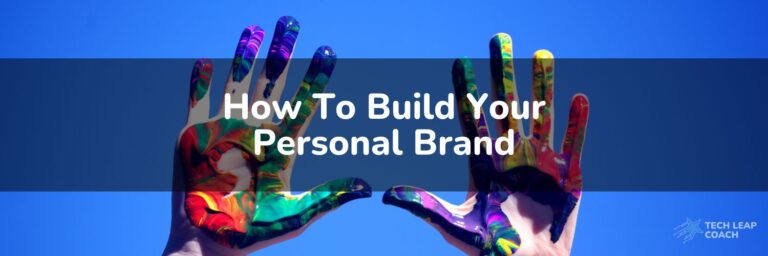13 Epic IT Personal Brand Statement Examples With Full Guide
Your personal brand statement is your online handshake.
It’s your chance to introduce your professional self, stand out, and make a memorable impression.
In this article, you will learn:
- The key elements of a compelling personal brand statement
- How to create & differentiate your personal brand statement from others
- Examples of effective personal brand statements in the IT industry
It’s so exciting in how many ways a good brand statement helps you on your way!
Let’s jump in quickly…
The Importance of a Personal Brand Statement
A well-crafted personal brand statement does wonders for your career.
It’s not just a line on your resume; it’s the essence of your professional identity.
And by clearly stating your strengths and goals?
You’re likely to grab the attention of your tribe, potential clients or hiring managers, depending on your goals.
Here’s why a personal brand statement is a must for you if you want to make an impact:
A lighthouse of professional identity
Most LinkedIn profiles are shallow and say nothing.
With a personal brand statement you can stand out from the crowd.
It draws attention to your unique professional identity and core values.
A chance to tell your story, your way.
Clarifies Your Value Proposition
What can you bring to the table?
A good statement clearly communicates your main value to offer, highlighting your strengths and the benefits of working with you.
It’s not just about what you do, but how you do it differently and better.
Builds Connections
People are drawn to authenticity and clarity.
A compelling personal brand makes it easier for others to understand and relate to you.
And others want to work with whom they know, like, and trust.
A good statement is often the first touch point for this.
Guides Your Career Trajectory
Whether you’re
- an entrepreneur who builds an online business,
- an IT professional who loves working with tech, or
- an executive who manages people and companies
… it’s all the same: you need to clearly see what you want from your career.
Then a personal brand statement acts as a compass for you.
It guides your decisions and ensures that your career trajectory aligns with your goals and values.
Now let’s see what an epic brand statement looks like…
Key Elements of a Compelling Personal Brand Statement
Your own brand statement is basically a positioning.
It tells the world who you are, what you do and what problem you are solving.
But a positioning means a position somewhere in space. And how can you locate a position of something?
By comparing it to the position of other things in space.
So a personal brand statement doesn’t work in a vacuum.
It needs to communicate what you do and stand for, relatively to something else.
You must position something against something else.
Components that make up effective statement
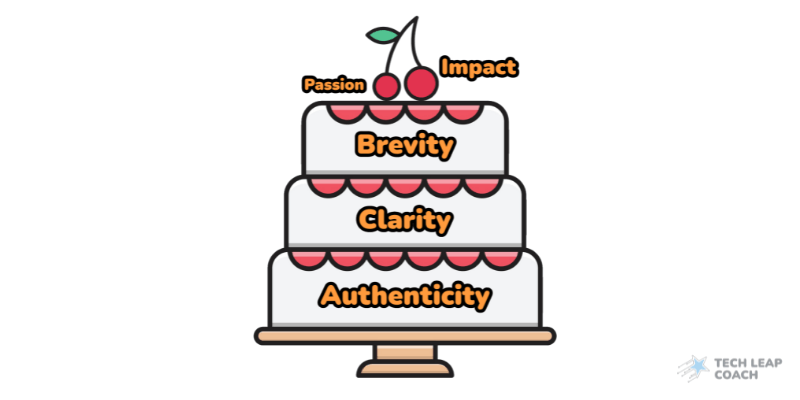
Most articles you find out there are just bullshitting about that a “perfect” personal brand statement has to be “authentic”, “clear”, “concise”.
And that you need to put your “passion” and “impact” into it with powerful words…
Let me tell you something.
None of these matter unless you talk about a real problem you solve, and specifically about how you solve it.
Not exactly about the how-to, but about what will be the outcome your target audience wants badly.
And sure, Authenticity is important: your statement should reflect the real you, what you value.
And sure, Clarity is important: no buzzwords or jargon that you need to spend minutes to figure out what they mean.
And sure, Brevity is important: I won’t read a paragraph about what you do. I won’t listen for half a minute when I ask you what you do.
But don’t worry about Passion, and making it Impactful. Forcing these will feel through.
Just say what you need with your statement naturally.
How to Differentiate Your Personal Brand Statement
Don’t sweat too much on this.
If you put in the mental work to craft your statement, then it will eventually become truly unique.
Why?
Because you HAVE TO use your own experiences and style.
And it’s completely unique to you.
Here are strategic ways to ensure your personal brand statement stands out:
Emphasize Your Unique Approach
How your approach to your work or your thought process sets you apart from others?
Do you solve problems in innovative or unconventional ways?
Highlighting this can make your statement memorable.
Incorporate Your Personal Story
As I said above, your background, experiences, and journey are unique to you.
Weaving elements of your personal story into your brand statement can make it more relatable.
This is what sets you apart from those who stick strictly to professional achievements.
Focus on Niche Expertise
Specializing in a particular niche or possessing a unique skill is a great differentiator.
It’s not necessary to have specialized knowledge or expertise when you start. But make efforts to acquire it.
With time it helps you to present yourself as an authority in your field.
Showcase Results
You already have specific achievements and data from your past?
Screw the generic descriptors then!
Focus on tangible results you’ve achieved or the impact you’ve made in your roles.
They make your statement more credible.
Use Vivid Language
Keep your statement professional, sure…
But don’t shy away from using vivid, engaging language that paints a picture of who you are and what you stand for.
Why?
It makes your statement more memorable and engaging.
Reflect Your Future Vision
Most personal brand statements focus on the present
But if you’re adventurous?
Consider adding an element that reflects your future plans or the broader impact you want to make.
Just an idea.
Be creative
Remember to add a creative touch that aligns with your industry.
Want an example?
If you’re in graphic design, mentioning your passion for combining vintage aesthetics with modern digital art can make your statement interesting and memorable.
Avoid Common Clichés
What does that mean?
I think you already read enough personal brand statements if you read this article.
And if that’s true you know what are the common phrases lots of people are using but they mean nothing.
For example: “thinking outside the box”, or claiming you’re a “people person”, or you “learned in the school of Life”, and other ridiculous bullshit.
They think these are catchy phrases, but they are not.
Just avoid them, okay?
And an extra tip for the end of this section…
Relax.
Your statement won’t be perfect.
And it’s okay.
It will evolve with you, change over time.
To ease you up, I share with you my current personal brand statement, as an example:
The Tech Leap Coach – I help IT professionals wake up with a smile every day, feeling that they’re on the right track with their career and life.
See?
It’s not perfect, and it lacks many parts we’ve discussed so far.
But now let’s review some other more interesting people’s statements as examples…
Great Personal Brand Statement Examples From the IT Industry
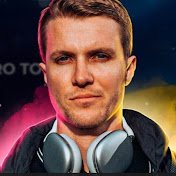
Aaron Jack
“From Broke English Teacher to Uber Software Engineer to Remote Solo Software Developer.”
Why it’s a good statement:
Aaron’s story sounds like something out of a movie, doesn’t it?
It’s all about a big change and beating the odds.
It tells you, “Hey, if I could do it, so can you.”
It’s hopeful and shows hard work pays off.
What could make it even better? Maybe a sneak peek into what he believes is the secret sauce to his success.

Arvid Kahl
“I empower founders & creators who want to build calm & sustainable businesses in public.”
Why it’s good:
Arvid’s statement feels like a warm hug.
It’s all about helping others and doing it openly so everyone can learn.
Unique, because not many talk about keeping business calm and stress-free.
How could it be even cooler? By adding a hint of the kind of transformations he helps achieve or a quick example of success.

Jeff Delaney
“google developer expert and data enthusiast working with #JavaScript and #Python, occasionally living the #sailinglife”
Why it’s a good brand statement:
Jeff mixes his tech geek side with his love for the ocean, showing there’s more to him than just code.
It tells you he’s skilled but also knows how to have fun.
It’s relatable.
How to spice it up? Maybe by sharing why he thinks sailing makes him a better developer or how it influences his work.

Jon Yongfook
“I’m the founder of Bannerbear”
Why it’s good:
Jon’s statement is straightforward – he’s proud of what he’s created.
It gets right to the point.
It’s like saying, “Here’s what I do, and I’m good at it.”
How could he jazz it up? By mentioning what Bannerbear does differently or how it helps its users stand out.
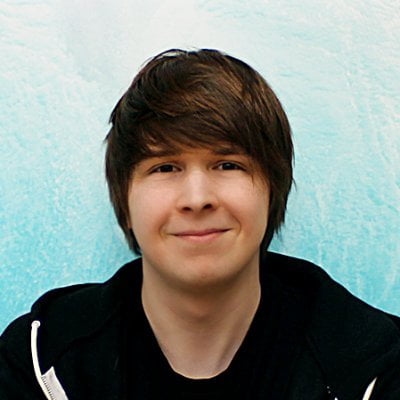
Josh W. Comeau
“Indie hacker and educator. Blogging at joshwcomeau.com. Previously @gatsbyjs, @digitalocean, @concordia_btcmp, @khanacademy.”
Why it’s good:
Josh’s statement is like opening a book to a page full of adventures.
It shows he’s been to places and done things.
You can tell he’s passionate about sharing knowledge, just like a teacher with exciting stories.
To make it shine brighter, he could add what drives his work or the biggest lesson he’s learned on his journey.

Kent C. Dodds
“Helping people make the world a better place through quality software.”
Why it’s a good personal brand statement:
Kent’s statement is like a superhero’s motto.
It’s all about using his powers (in this case, coding skills) for good.
It feels big-hearted and ambitious, showing he’s not just about code, but about impact.
How could he dial it up? By sharing a personal story that shows why this mission matters to him.

Lee Robinson
“I’m a frontend developer, optimist, and community builder. I currently work as the VP of Product at Vercel, where I help teach the Next.js community, an open-source web framework built with React.”
Why it’s good:
Lee’s statement feels like a friendly chat over coffee.
It’s personal, upbeat, and community-focused.
You get a sense of his role and his positive outlook.
To add even more sparkle, he could mention a specific community success story or a big dream he’s working toward.
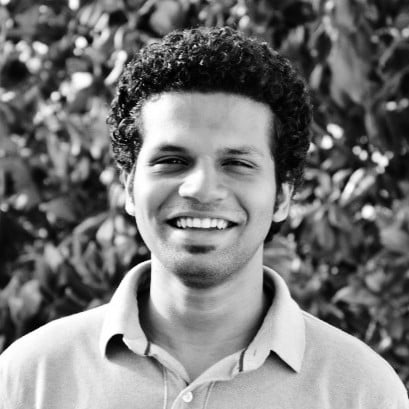
Louis Pereira
“building assets on the internet.”
Why it’s good:
Louis’s statement is like a mystery box.
It’s simple, yet it makes you curious about what kinds of assets he’s talking about.
It’s modern and hints at creativity.
To unwrap the mystery a bit, he could tease one exciting project or describe what ‘building assets’ means to him.
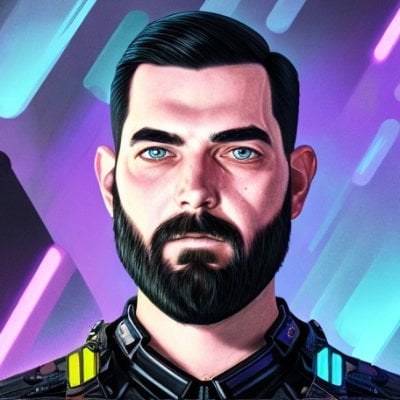
Matt Wolfe
“AI, No-Code, Tech, Futurism – I’m a tech nerd and talk about tech nerd stuff”
Why it’s good:
Matt’s statement is like a beacon for fellow tech enthusiasts.
It’s straightforward, declaring his love for all things tech and futuristic.
It invites you into his world of AI and No-Code with the promise of shared excitement.
To level it up, Matt could hint at the kind of projects or ideas he explores, making his niche even more intriguing.

Maximilian Schwarzmüller
“5-star rated bestselling online instructor, passionate developer and entrepreneur. Taught more than 2,000,000 students with our premium courses.”
Why it’s a good personal brand statement:
Maximilian’s statement feels like a trophy case, shining with achievements and passion.
It’s impactful, showcasing his reach and dedication to teaching.
It positions him as a leader in online education.
A personal touch about what drives his passion for teaching could make this statement even more compelling.

Pieter Levels
“levels.vc +44%/y
CBT.chat $300 MRR
PhotoAI.com $50K/m
InteriorAI.com $44K/m
NomadList.com $51K/m
RemoteOK.com $44K/m”
Why it’s a good “statement”:
Pieter’s format breaks the mold, listing his projects with impressive metrics.
It’s like a dashboard of his entrepreneurial spirit and success.
This unconventional “statement” speaks volumes about his creativity and knack for building profitable ventures.
Adding a sentence on his vision or the impact of these projects could weave a stronger narrative around his achievements.

Rob Walling
“Helping founders for 17 years, now through MicroConf and TinySeed”
Why it’s good:
Rob’s statement is a warm hand extended to founders.
It’s all about support and guidance, grounded in years of experience.
Mentioning MicroConf and TinySeed highlights his current platforms for helping startups.
Sharing a success story or philosophy on founder support could enrich his statement.
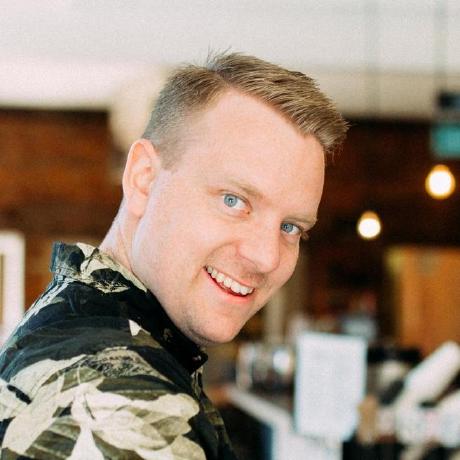
Wes Bos
“I’m here to help you become a really good web developer. I’m a full Stack JavaScript developer from Canada.”
Why it’s good:
Wes’s statement is friendly and approachable, just like a knowledgeable buddy ready to guide you through the coding maze.
It’s clear and personable, promising transformation with his expertise.
To add more flavor, Wes could mention a teaching method or principle that makes his approach unique.
I cherry-picked these people, because they caught my attention a long time ago and I have followed them since then.
I consider many of them as mentors, because I learned a lot from them.
Others are just entertaining.
Your personal brand statement should be more than words; it should encapsulate your essence.
The examples above work because they’re concise and target specific audiences.
To craft your statement, think about your unique skills and how they address a need or desire in the IT industry.
Then, distill that into a focused and memorable tagline.
You’ve got this, trust me! Let’s see how…
Crafting Your Own Personal Brand Statement
Creating a personal brand statement is like telling the story of your professional journey in a single sentence.
It distills your skills, values, and personality, making sure you stand out in the crowd.
So how to create a personal brand statement that resonates and reflects your professional identity?
By analyzing yourself and strategically collecting the required parts…
All that’s left for you is to use all these morsels above and write a personal brand statement for yourself…
Step-by-Step Guidance on Creating a Personal Brand Statement, Incorporating Lessons from the Examples
1. Brainstorm Your Qualities:
Start by listing your best qualities. Focus on traits that define you and how they relate to the industry you’re in.
2. Know Your Audience:
Who are you trying to impress? Tailor your statement to reflect what would appeal to them.
3. Highlight Your Uniqueness:
What sets you apart from the competition?
Perhaps you have a unique approach to problem-solving or an innovative mindset.
4. Draft and Refine:
Combine your skills, audience understanding, and unique attributes into one or two sentences.
Start broad, then refine it to precision.
5. Get Feedback:
Ask peers for input.
Revise until your statement feels genuinely yours and resonates with the message you intend to convey.
Final tips to reflect on your unique strengths and how to articulate them
Think about the situations where you’ve excelled or felt the most fulfillment.
These are clues to your unique strengths.
Reflect on how the personal brand statement examples highlight individual achievements and character.
Be specific about your own accomplishments and the value they’ve added.
Remember, your personal brand statement is a promise of the experience you deliver.
